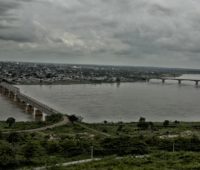What is the relationship between the built environment, social interaction, crime, policing, and resident experience? Patience Adzande seeks to answer these connected questions through an examination of Makurdi, Nigeria, by showing the limits of urban planning and insufficient infrastructure—including lapses in formal policing. These shortcomings have left many residents to create their own “territorial markers”—including constructing walls and fences—which have had significant impact on social interaction with and experience of the urban space, often not achieving the deterrence in crime residents sought. Adzande’s contribution to the “Layered Metropolis” series offers sobering analysis of the limits of formal urban intervention at the same time that it offers some prescription for policy for an improved future in the lives of city residents.


